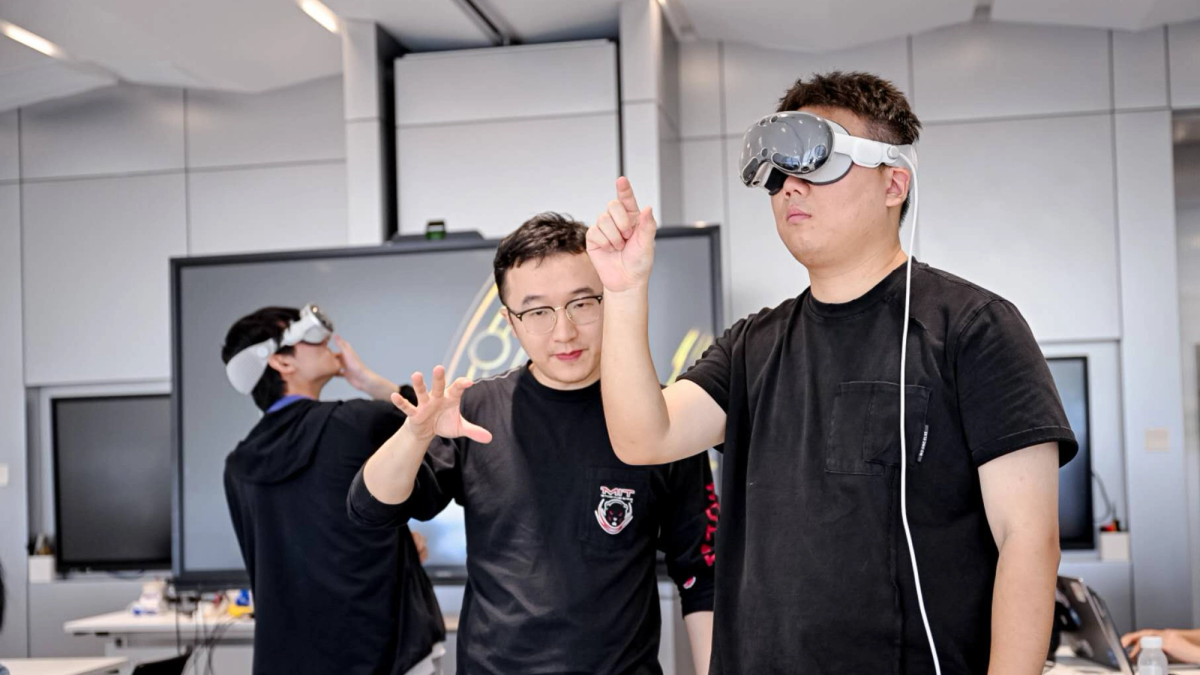Shaping New Realities
A Hands-On Introduction to Spatial ComputingOct 28, 2025

We are moving beyond the era of flat screens into a new, immersive paradigm: spatial computing. This transformative shift, where digital content is seamlessly woven into our physical world, requires a fundamentally new approach to design. But how do we create intuitive, useful, and magical experiences when the world itself becomes our canvas?
Register
Space is limited to 15 participants
This intensive three-hour workshop is your hands-on introduction to this exciting frontier. We will begin by establishing the core principles of spatial design — from managing user attention and comfort to creating intuitive interactions with our eyes, hands, and voice. Following this, you will experience the power of spatial computing firsthand with a guided demo on the Apple Vision Pro, providing tangible context for the theories discussed.
Finally, you will apply your newfound knowledge in a dynamic co-design sprint. Working in small teams, you will ideate and storyboard a concept for a unique spatial experience. Participants will leave with a foundational understanding of spatial computing, direct experience with a category-defining device, and a practical framework for designing in three dimensions. This workshop is ideal for designers, developers, product managers, and creative thinkers eager to build the future of human-computer interaction.
Workshop Facilitator

Lei Xia
Currently a Visiting PhD student at the MIT Ideation Lab, Lei's research enhances human creativity and learning by merging artificial intelligence with immersive virtual environments. As a PhD Candidate at Tongji University, he designs AI companions for designers and develops applications to foster creativity and aid in trauma recovery.
This work builds upon his foundational research at MIT's Integrated Design & Management (IDM) program, where he collaborated with the MIT Media Lab Fluid Interfaces group on kinesthetic language learning in virtual reality. Prior to his doctoral studies, Lei was an Associate Director of Experience Design at VML&R, where he led the development of the Pan-China digital experience for the Ford Mustang Mach-E.
Accessibility
Our events are enriched by your presence and we are committed to making them accessible to everyone.
Please email us at [email protected] to request accommodations.